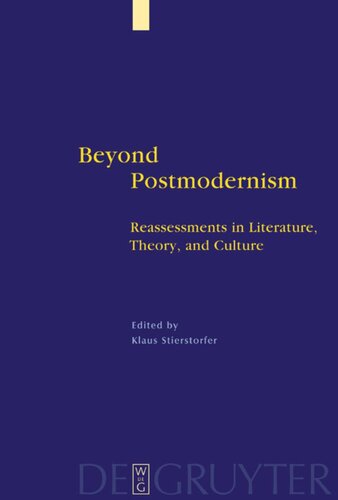

Most ebook files are in PDF format, so you can easily read them using various software such as Foxit Reader or directly on the Google Chrome browser.
Some ebook files are released by publishers in other formats such as .awz, .mobi, .epub, .fb2, etc. You may need to install specific software to read these formats on mobile/PC, such as Calibre.
Please read the tutorial at this link: https://ebookbell.com/faq
We offer FREE conversion to the popular formats you request; however, this may take some time. Therefore, right after payment, please email us, and we will try to provide the service as quickly as possible.
For some exceptional file formats or broken links (if any), please refrain from opening any disputes. Instead, email us first, and we will try to assist within a maximum of 6 hours.
EbookBell Team

4.1
70 reviewsAfter the veritable hype concerning postmodernism in the 1980s and early 1990s, when questions about when it began, what it means and which texts it comprises were apt to trigger heated discussions, the excitement has notably cooled down at the turn of the century. Voices are now beginning to be heard which seem to suggest a new episteme in the making which points beyond postmodernism, while it remains at the same time very uncertain whether what appears as newness is not rather a return to traditional concepts, theoretical premises, and authorial practices. Contributors to this volume propose to explore new openings and recent developments in anglophone literatures and cultural theories which engage with issues seen to be central in the construction of a postmodern paradigm, but deal with them in ways that promise new openings or a new Zeitgeist.